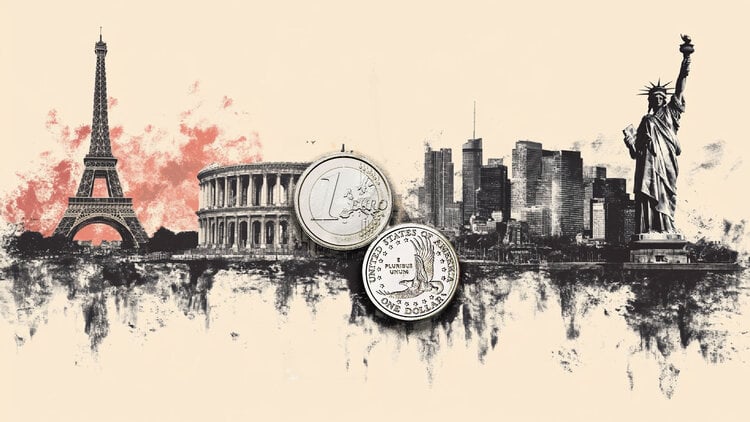After 42 years, Chileans will decide whether or not to approve a new constitution. This Sunday’s referendum (4) will be mandatory for all those who have an electoral domicile in Chile. Anyone who fails to attend will be subject to a fine.
The polls will be available between 8 am and 6 pm (local time) and, according to the electoral service, 15 million people are eligible to vote. Only those who are sick, outside the country, more than 200 km from the place indicated for voting or who have some other serious impediment – duly verified by a judge – will be able to leave.
Voters will answer the following question: “Do you approve the text of the New Constitution proposed by the Constitutional Convention?”. The possible choices are: “approve” or “reject”.
This will be the first mandatory vote in the Latin country since 2012, when voter turnout became voluntary.
old claim
The writing of a new Constitution is an old demand of Chileans, as explained by Regiane Bressan, professor of International Relations at Unifesp. The current text was implemented during the dictatorship of Augusto Pinochet, in 1980, and, in 2019, large popular demonstrations called for the drafting of a new constitutional charter.
“This constitution is considered outdated, and the population has been clamoring for a more current text that meets contemporary demands and, above all, greater State intervention in some key sectors, such as health, education and retirement”, he says.
Then, in 2020, 78% of Chileans voted in favor of forming the Constitutional Convention. The final project, prepared by 78 men and 77 women, was delivered on July 4 of this year to President Gabriel Boric and made available for popular reading.
Possible definitions
If the text is approved, a plenary session of the Chilean Congress will be convened for the promulgation of the new Constitution.
Now, if the new constitutional charter is rejected, President Boric advocates that a new convention be elected, without the need to hold another plebiscite to see if the people want to change the constitution (which has already been done in 2020).
In that case, other constituencies could be elected at least 125 days after the result of that Sunday vote.
Regiane Bressan also points out that it is possible that the government of Chile will try to change the Magna Carta through parliamentary amendments, and not with a “total” alteration of the text.

highlights
The draft of the new Constitution is based on ten pillars that bring together “fundamental elements and the most relevant norms”, according to the convention.
The top 10 points are:
- Democracy: with attention to transparency, equality, freedom of thought and expression, and mechanisms for participatory democracy;
- Inclusion: enshrining, among other things, rights for women, children and adolescents, people of indigenous peoples and nations, people with disabilities, people of gender diversity and dissidence;
- Institutional tradition: marking, among other things, the end of the Senate, replaced by the Chamber of Regions, in which each region will have the same number of representatives and also recognizing the legal systems of indigenous peoples;
- Rights guarantees: ensures essential rights such as health, education, recognition of domestic and care work, the right to housing, adequate food, the human right to water and basic sanitation, and the right to live in a safe place, free from violence; it also includes parity and a gender perspective;
- Freedom: recognizes freedom of religion, thought, expression, teaching and the freedom to undertake and develop economic activities;
- Gender equality: protects the right to a life free from gender violence, sexual and reproductive rights and the right to identity, and highlights the gender perspective in justice, the principles of parity and partisan and inclusive political representation;
- Protection of nature and the environment: confirms the rights of nature and the State’s special duty of custody over the country’s natural commons;
- Regions: recognizes the autonomy of municipal governments and other regional entities, in addition to the formation of indigenous territorial autonomies;
- Future projection: the right to digital political participation, information, knowledge, education and digital connectivity, and the protection of personal data are incorporated;
- Responsible economy: the project enshrines the principles of fiscal responsibility, territorial equity and development in harmony with nature, as well as a more active role for the State.
Among these highlights, there is, for example, the concept of plurinationality. Joana Salem, a specialist in Latin America and a doctor in economic history from USP, explains that this idea is “the understanding that a country can be composed of more than one nation, and that one nation does not cancel out the others”, requiring an intercultural relationship with others within the same country.
“So, it would be recognizing indigenous peoples as self-determined nations, with their own cosmovisions, also with their own political bodies, with their own justice within another nation”, he adds.
In addition, the project provides for sexual and reproductive rights, providing “among others, the right to decide freely, autonomously and informed about one’s own body, about the exercise of sexuality, reproduction, pleasure and contraception”. Abortion would also become legal in the country.
Disinformation campaign and survey rejection
Both experts say that some groups linked to the far right are spreading fake news and disinformation about the new constitutional charter.
Salem points out that this happens mainly through social networks, channeled in what was assembled from the campaign of José Antônio Castro. He was the far-right candidate who contested the second round of Chile’s presidential elections last year, losing to Gabriel Boric.
She claims that the method used in this disinformation campaign has been applied “by the far-rights in different parts of the world”. “It has been called by some the “Bannon” method, because it is based on Steve Bannon, who was a political adviser to the [Donald] Trump [ex-presidente dos EUA] responsible for its communication, for this strategy of creating lies and fake news that circulate at high speed on suspicious portals, but disguised as real”, he explains.
Main fake news about Chile’s new constitution:
- Country name will change;
- End of the Chilean flag and anthem;
- There will be no more police;
- Venezuelans and Haitians will seize power;
- Indigenous people would go unpunished for crimes;
- Immigrants and indigenous people will take power;
- Abortion allowed at 9 months of pregnancy;
- Chileans cannot travel through the national territory because it will be under indigenous and immigrant control;
- It will not be allowed to buy bottles of water and ice;
- There will be no more education and private health;
- There will be no private property;
- Religion will be prohibited;
- There is a huge risk of fraud that will win the approval;
- The electoral service will rig the votes with the names of the dead for the approval of the text.
A poll released on August 20 revealed that 49% of respondents would vote “rejection” in the referendum “with the information they have today”. Meanwhile, 39% assured that they would choose “approval”. In addition, 12% declared that they “do not know/will not vote”.
The survey projected, then, with the estimate of the number of voters for the plebiscite, that 54% of them were inclined to reject it, while 46% would approve the new Magna Carta.
Joana Salem highlights that there are criticisms regarding the research methodology, which could not be capturing the opinion of the working class, which has a greater tendency to “yes”.
“Although these polls are giving victory to the rejection, there is still an important margin of possibility that the approval will win, because the battle against fake news is still open, it is still happening”, he says.
The expert emphasizes, then, that only the referendum itself will be able to show the degree of efficiency of the fake news campaign against the new Chilean constitution.
Source: CNN Brasil
I’m James Harper, a highly experienced and accomplished news writer for World Stock Market. I have been writing in the Politics section of the website for over five years, providing readers with up-to-date and insightful information about current events in politics. My work is widely read and respected by many industry professionals as well as laymen.







